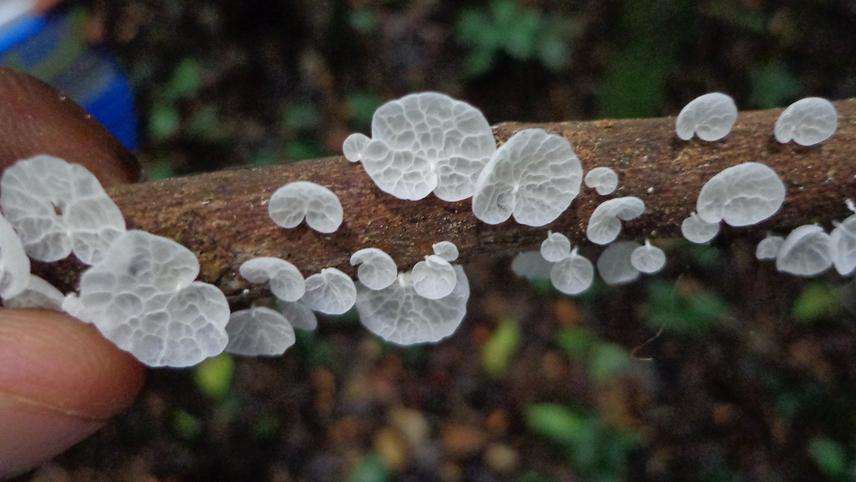Levi Yafetto
This project broadly aims to document fungal biodiversity, and initiate conservation efforts within local communities of the Kakum National Park.

The extent of fungal biodiversity in the tropics is unknown. This situation is direr in Africa, where many fungal species are undescribed in the continent’s unexplored habitats; Ghana’s tropical forest ecosystems are no different. Moreover, there is lack of a complete inventory on fungal species and the extent of diversity in Ghana. Unlike animals and plants that receive enormous attention and recognition, fungi are hardly recognized by most Ghanaians. This absence of recognition undermines our appreciation of key ecological roles fungi play in the ecosystem, hence the little effort put into scientific studies of fungi, their biodiversity, and conservation in Ghana. The Kakum National Park (KNP) is an excellent forest ecosystem model to initiate mycological studies in Ghana.
This project specifically aims to:
(i) evaluate the level of ethnomycological knowledge within local communities around the KNP;
(ii) determine the scope of fungal biodiversity in the KNP;
(iii) create an inventory of mushrooms in the KNP;
(iv) evaluate the impact of mushroom hunting on fungal biodiversity and conservation efforts.
The project will be in three phases.
First, a survey will be conducted in the surrounding communities of the National Park, using a structured questionnaire, and, also, through interactions and one-on-one interviews, to evaluate (i) the amount of indigenous mycological knowledge within the local communities, (ii) the extent of mushroom hunting among local communities, and (iii) the extent of use of wild mushrooms among residents as food, medicine, or for livelihood.
Second, wild mushrooms will be collected from the Kakum National Park for identification and curation. Specimen will be collected under the supervision of staff of the Park, during the wet seasons of the year. Undergraduate students from the School of Biological Sciences, University of Cape Coast (UCC), and some members from the community will be recruited and trained during this phase of the project. Field collected fungal specimen will be comprehensively documented into a computerized database. Voucher specimens will be curated at The Herbarium, UCC.
Third, workshops will be organized to share findings with the communities. The workshops will ultimately aim to: (i) create conservation awareness within communities, and (ii) emphasize the sustainable use of the fungal resources of the KNP. The prospect of introducing domestic mushroom cultivation, as a feasible, alternative, more lucrative, income-generating venture for the communities, and also as a strategic fungal biodiversity conservation effort will be pursued during the workshop.